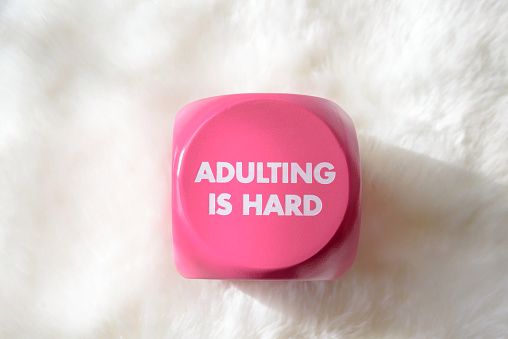
It used to be easy to spot an adult. They shuttled kids to school in cars, mowed lawns in the yards of homes they owned and could even fix the lawnmower when needed. Now, not so much.

(Getty Images)
It used to be easy to spot an adult. They shuttled kids to school in cars, mowed lawns in the yards of homes they owned and could even fix the lawnmower when needed. Now, not so much. Millennials are largely priced out of the housing market, starting families later and using smartphone apps to outsource life’s basic tasks.
The old markings of adulthood clearly signaled independence, but today’s youth are struggling with the concept, having lost traditional barometers.
Maybe they’ll recover something in academia. This year, one of the most popular classes at the University of California, Berkley’s San Francisco campus covers “adulting,” preparing students for the responsibilities of growing up, teaching everything from sticking to a budget to cooking meals.
It’s tempting to scoff at students needing a class to decipher nutritional labels or balance budgets. And a quick scan of the comments sections on news stories about the 200 people who were turned away from the 80-student class reveals plenty of scorn, much of it tinged with generational warfare about lazy millennials.
But critics can’t deny that the demand is real. These life-skills classes are popping up everywhere, from university campuses to local libraries. There’s an entire cottage industry helping young adults drop the modifier and become adults. The question we have to ask is: why now?
Many claim that no other generation needed hand-holding to assume the responsibilities of adulthood. This point is complicated. Home economics classes were part of most provincial curriculums for decades, where students did learn about budgeting and nutrition, and yet the number of Canadians who can’t pay their credit card bills is surging and the country’s obesity rate has doubled since the 1970s.
As kids grow up, they look to their strongest role models to determine what “adulting” means. In my work with young people and families, parents tell me they want to raise caring, independent children who can find allies and build a support system. They want to raise compassionate, self-sufficient adults. When I ask how their kids spend most of their time, the list parents rattle off sounds more like the resume of a West Point applicant than the extracurriculars of a high school student aiming for self-reliance.
We’re optimizing kids’ time so they can succeed in the future job market, but we’re not teaching them to grow up.
My son is only two, but I’ve already started a mental list of basic skills I want him to have to gain independence. Working with school groups, it’s a response to the needs I see in young people across the country.
I want my son to know how to save for his future before he misses a credit card payment, to create and navigate healthy relationships and to practice self-care. Understanding well-being, health and pathways to financial independence are empowering routes to self-reliance.
To be grown-up is, in the most literal sense, to be done growing up. But we all have gaps in our knowledge. Young people in adulting classes are taking responsibility and doing something about it. That’s the most adult response I can imagine.
Craig Kielburger is co-founder of the WE Movement, which includes WE Charity, ME to WE Social Enterprise and WE Day.